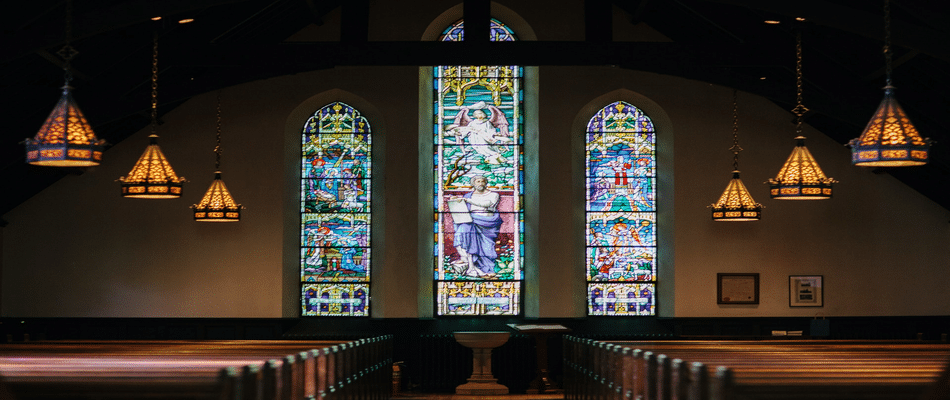In recent years Redemption Hill Church has moved from a statement of faith to a confession of faith. And you would be forgiven if you ask, what’s a confession of faith? And how is it any different than a statement of faith? It seems few Christians, especially within evangelicalism, are familiar with historic creeds and confessions. As J.V. Fesko points out in his book The Need for Creeds Today, there are several reasons for “deconfessionalism.” Go check out his book to learn more. What I want to touch on is the value of holding to a confession of faith and the utility of a confession of faith.
Value
First, a confession of faith tends to be more robust than a run-of-the-mill statement of faith. Meaning, if you read the Heidelberg Catechism or the Westminster Confession of Faith, you will be struck by its length and depth. But when you pull up the statement of faith from “Good Vibes Church” two miles down the road, you’ll read they believe in the Bible and Jesus. Not wrong, but it doesn’t say much. I have come to appreciate our confession of faith because the church knows what I believe as a pastor and preacher.
Second, the church can hold the pastor accountable with a confession of faith. I believe it is good for the church to listen well to the sermon and test what is said against Scripture and a confession of faith. I will not get away with preaching how each person born into the world totally depraved, and then the following Sunday say that everyone born into the world is essentially good. Ultimately, the church is protected from a pastor going theologically rouge when there is a confession of faith.
Third, a confession of faith is meant to be a document that lasts for centuries. The Westminster Confession of Faith has been around since 1646. The Heidelberg Catechism was codified in 1563. The Second London Baptist Confession of Faith goes back to 1689. When you read these confessions of faith, you see the ancient creeds pop from the paper—creeds such as the Nicene Creed of AD 325 (and updated in AD 381 in Constantinople). And we can’t forget the Chalcedonian Creed (AD 451) and the Athanasian Creed (although there are questions about authorship and dating of the Athanasian Creed). So not only is a confession of faith meant to stand the test of time but it is connected to historic orthodoxy. The Confession of Faith at Redemption Hill Church, which is a part of Trinity Fellowship Churches, modernized, edited, and added to The Second London Baptist Confession of Faith for our purposes. Our confession of faith is also connected to historic orthodoxy.
Utility
What is the point of a church committing to a confession of faith if she does not use it? In other words, one of the reasons a church commits to a confession of faith is its utility – its usefulness. Here are several brief thoughts about how a local church can use a confession of faith to build up the body of Christ for the glory of God.
Catechesis
A Confession of Faith of faith is a fantastic tool to educate the church. For example, in 2020, I taught a class to the church using a systematic theology book. The course went fine. The systematic theology book was a good tool. However, in the future, I’ll use our confession of faith to teach theology to the church.
A Confession of Faith is a tool for catechizing children. An excellent way to instruct children is to create questions from the confession’s content. The New City Catechism has developed tools for parents. I am currently taking my children through Comforting Hearts, Teaching Minds: Family Devotions Based on the Heidelberg Catechism. When parents pair the teaching of a confession with the Holy Scripture, a foundation of truth is laid for their children, and consequently, parents remind themselves of biblical truth as they teach their children.
A confession of faith can be used during corporate worship. If a church intentionally identifies a theological theme for a specific gathering, then a confession of faith will likely hit on the theme. It’s not unusual for traditional (and a few nontraditional) churches to incorporate a reader/response using creeds and confessions. Reader/response is another great way to catechize the church.
Devotions are another means of bringing profound theological truths to the heart. Try this: Grab your confession of faith and your Bible. Then, read the confession of faith slowly, one sentence at a time, connecting each theological truth with the biblical footnotes. It might take you months to read the entire confession, but you will enrich your spiritual life.
The Goal of a Confession of Faith
The goal of a confession of faith is to build up and encourage the body of Christ and glorify God. In short, the value and utility of a confession of faith should lead to worship—worship of the one true God who is on mission to reveal his glory through the church. If the church can approach a confession of faith through the lens of worship, then there will be much to enjoy.
Additional Resources:
- The Creedal Imperative by Carl Trueman
- The Need for Creeds Today by J.V. Fesko
